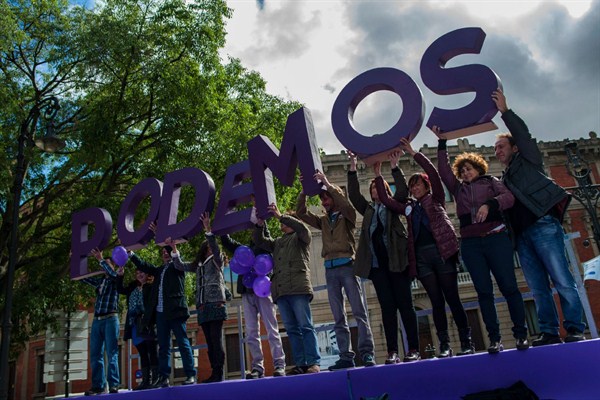As Spain heads into general elections this fall, all eyes are on two new political parties that threaten to upend the political establishment. On the left is the much talked about Podemos, the fiery left-wing movement so often compared to Greece’s far-left Syriza party. With an eye toward improving its electoral prospects, in recent months Podemos has moderated the radical economic program that first brought attention to the party.
Podemos no longer calls for Spain to leave the eurozone; instead, it calls for flexibility in dealing with Spain’s creditors. Gone, too, are demands for a basic universal living wage and a citizens’ audit of the public debt. The former was deemed too costly and the latter impractical. Instead, the party calls for a rise in the minimum wage and protections against further social cuts—standard fare for left-wing progressive parties. Unsurprisingly, it is trying hard to distance itself from Syriza. “Podemos and Syriza have different economic approaches,” Nacho Alvarez, Podemos’ head of economic policy, said at a press conference in July, right after the Greeks voted down additional austerity measures via a referendum.
Much less known is Ciudadanos, or Citizens, often referred to as “the Podemos of the right.” The party, which appeals to conservative voters frustrated with the status quo but who cannot bring themselves to support Podemos, promotes tax credits for workers who earn less than the minimum salary and reforms to the labor market intended to reduce part-time employment. But what has drawn most attention to Ciudadanos is that for a party hailing from Catalonia—one of Spain’s most fiercely independent regions, which only last year threatened to break away from Spain—Ciudadanos is unabashedly anti-Catalan.

